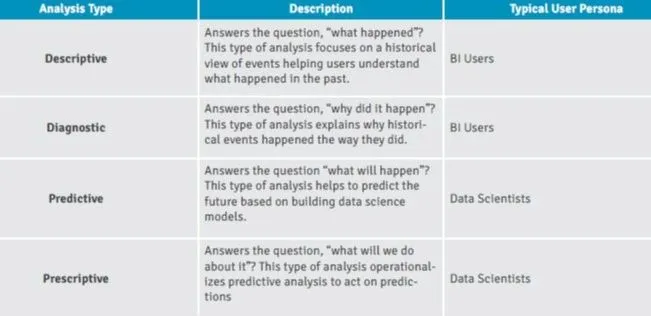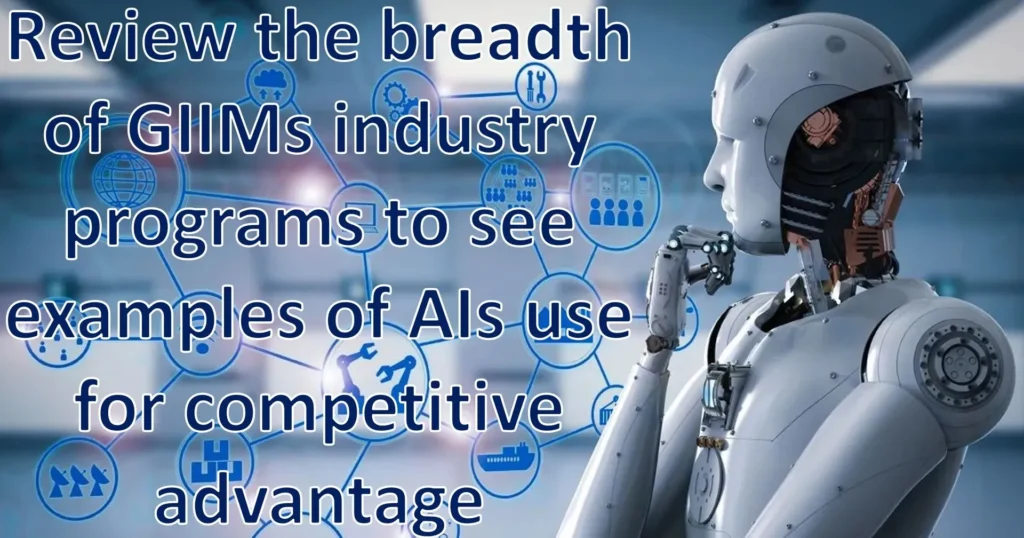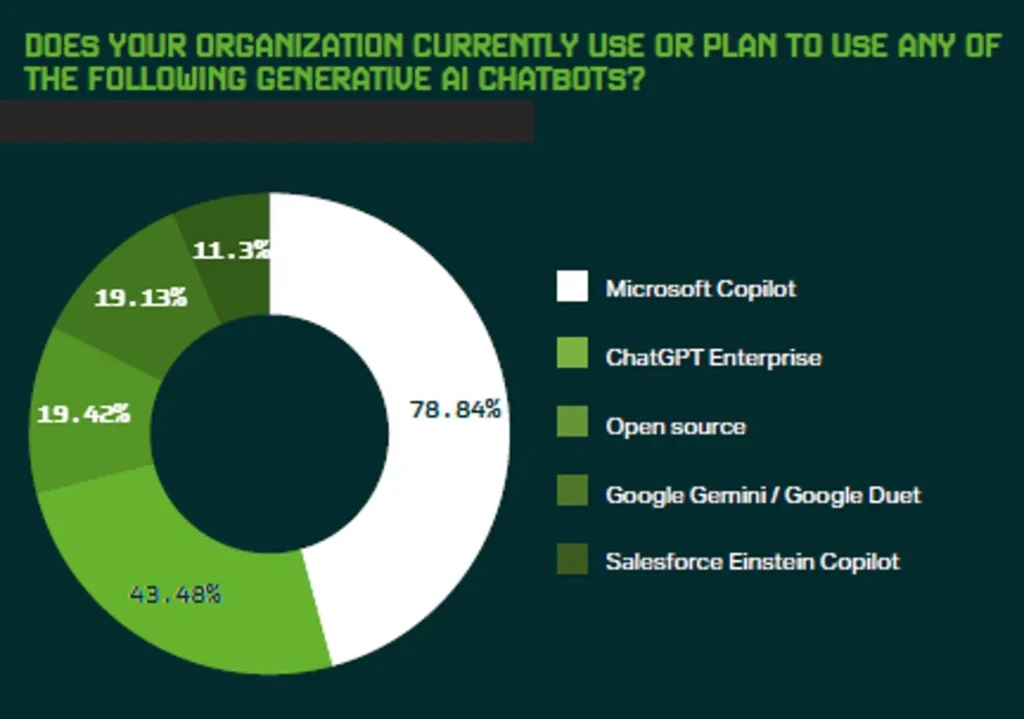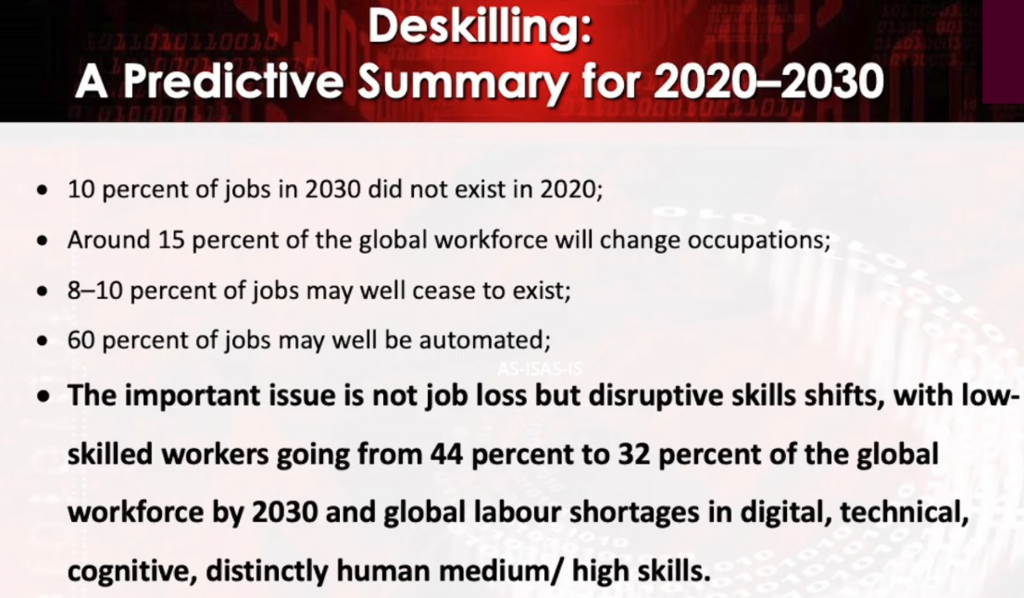More about GIIMs AI Program
- The pace of AI adoption is unprecedented, advancing at a rapid rate with no clear long-term limit.
- AI has progressed beyond simply automating repetitive tasks and is set to become a powerful collaborative tool.
- AI will assist employees in data analysis, generating predictive insights, and improving decision-making processes. It can free up time for creative problem-solving by automating mundane tasks, enhance customer experiences with chatbots and machine learning, and provide actionable insights through predictive analytics.
- AI will not quickly replace every manager & employee; however, those who embrace and understand AI will outpace and replace those who do not.

After successful completion of this program, candidates will also receive an ICCP or IOA Certification!!!


The entire AI Adoption Life Cycle & Capability Maturity Models are Addressed
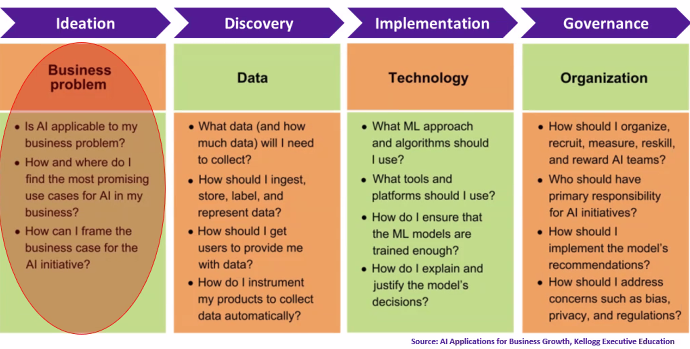
Companies are racing toward AI adoption, yet many remain trapped in legacy business processes that choke progress. Applying AI to inefficient, ineffective processes doesn’t unlock value—it masks dysfunction. Without proper thought and action, AI becomes theater, not transformation. The warning is clear: modernize your foundation or watch your AI investment gather dust. This isn’t a new misstep—we’ve seen this playbook before. We need to learn from the mistakes of the past. Value does not come from the technology. Value comes from how the business changes what they do to leverage the technology.
Where are you in the AI race?
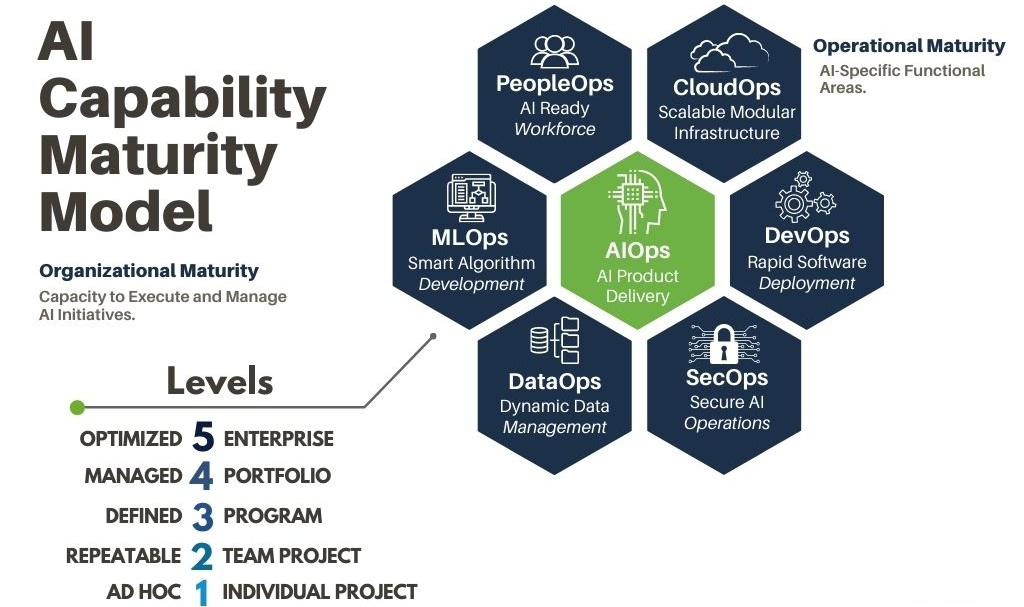
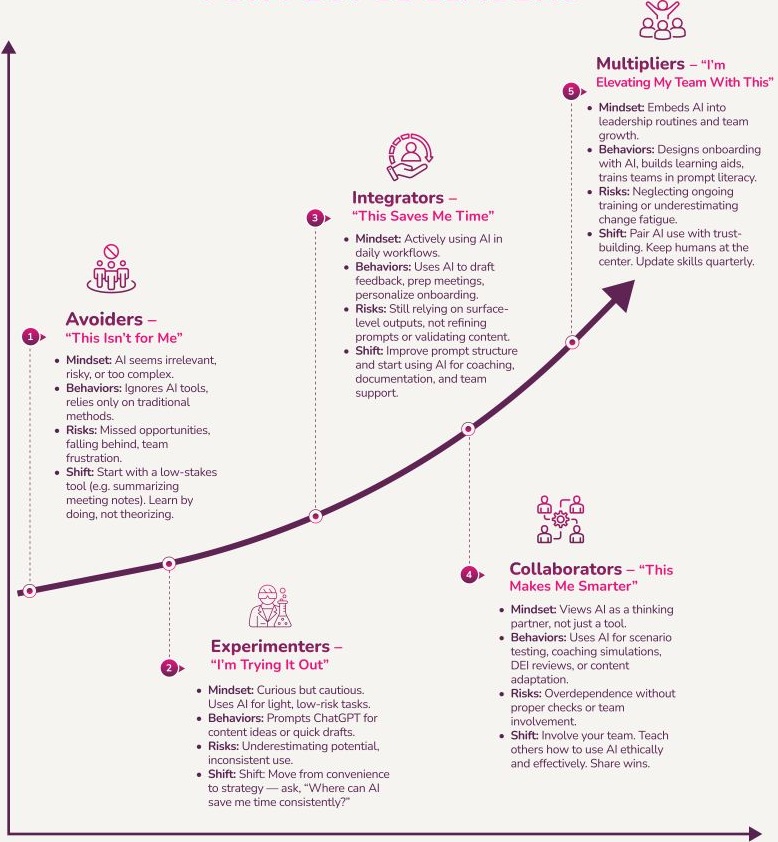
- AI is having a profound impact across every industry.
- The GIIM courses are crafted to address the critical skills gap in technology, management, leadership, business, interpersonal abilities, and industry.
- These courses empower candidates to leverage their existing education and experience (e.g., mathematics, statistics, management, business, industry, data, and programming) to develop and execute strategic AI initiatives.
- Based on a candidate’s background and goals, certain prerequisite courses might be necessary.
- Upon completion, candidates will be well equipped to capitalize on the growing opportunities in AI, data science, and advanced analytics, extending well beyond traditional technical roles.
- AI is not here to take away opportunities; it’s here to reshape them. The real risk isn’t AI itself, but failing to adapt to a world that is rapidly evolving.
- The workforce of the future will be a blend of human expertise and AI capabilities. Those who embrace this shift will find themselves leading the charge, not falling behind.
- AI’s impact on industries worldwide is profound.
- AI may not replace every manager or employee, but those who understand it will likely succeed over those who don’t.
- While CIOs are often singled out, all managers need to grasp AI’s opportunities and how to implement it effectively.
- As with previous new technologies, it is not the technology itself that provides the benefits; it is how the business changes what it does to take advantage of the technology.
Criteria for Identifying AI Application Candidates
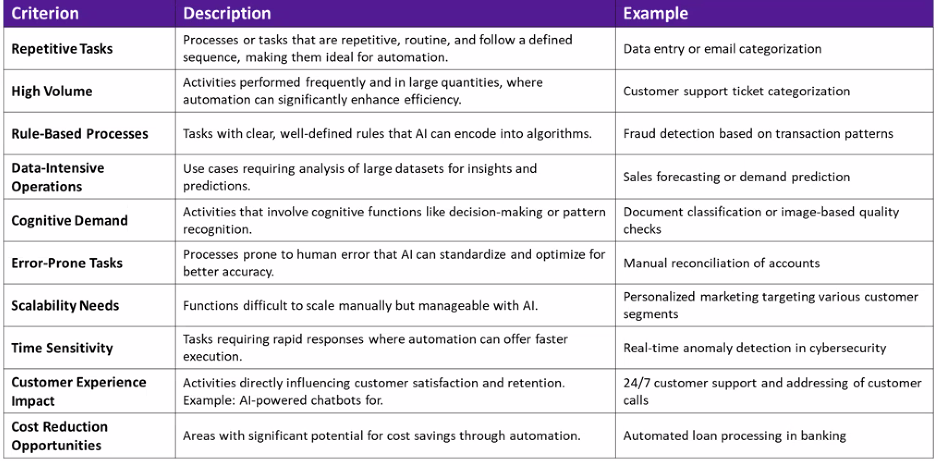
The widespread adoption of AI among companies is remarkable, yet many struggle to see any measurable value. This pattern mirrors the Productivity Paradox debates of the 1980s. Is this a case of history repeating itself.

AI Productivity Paradox
While businesses recognize AI as pivotal to their future, intuition alone won’t unlock its full potential.
According to McKinsey’s State of AI survey released last March, 78% of companies reported using AI in at least one function as of last year, a leap from 55% in 2023. However, these initiatives have typically resulted in modest financial gains, with cost savings under 10% and revenue increases under 5%.
Despite the limited measurable returns, businesses continue to heavily invest in AI.
This data underscores a “productivity paradox,” where significant advancements in AI capabilities have yet to yield substantial improvements in national productivity. While some projects have seen impressive results, many companies find themselves disappointed with the outcomes of their AI endeavors.
This pattern mirrors the productivity paradox debates of the 1980s; a case of history repeating itself.
Executive Summary of AI Struggles
Limited ROI from AI Pilots
MIT’s Nanda AI project reveals that only 5% of integrated AI pilot programs deliver significant financial returns, while the vast majority show no measurable impact on profit and loss. This underscores a growing disconnect between AI investment and business value realization.
High Failure Rates Despite Broad Adoption
Although 80% of enterprises have explored AI technologies, only 40% have moved to deployment, and half of all AI initiatives fail outright. Enterprise-grade AI systems are increasingly being quietly rejected, with just 20% reaching pilot stage and a mere 5% advancing to full production.
Market Sentiment
Marko Kolanovic, former Head of Research at JP Morgan, commented: “Sounds about right for a bubble,” reflecting broader skepticism around the current wave of AI enthusiasm.
Employee-Led Adoption Trends
Interestingly, the report highlights a grassroots shift: employees are actively seeking AI tools but often bypass corporate platforms in favor of consumer-grade solutions like ChatGPT, funded out-of-pocket. This suggests a misalignment between enterprise AI offerings and user needs—raising questions about usability, agility, and cost-effectiveness.
This data signals a critical need for executives to reassess their AI strategies—not just in terms of technology, but in how it’s deployed, adopted, and aligned with real business outcomes.
Insanity – Doing the same thing over and over again and expecting different results.

Are you AI ready?
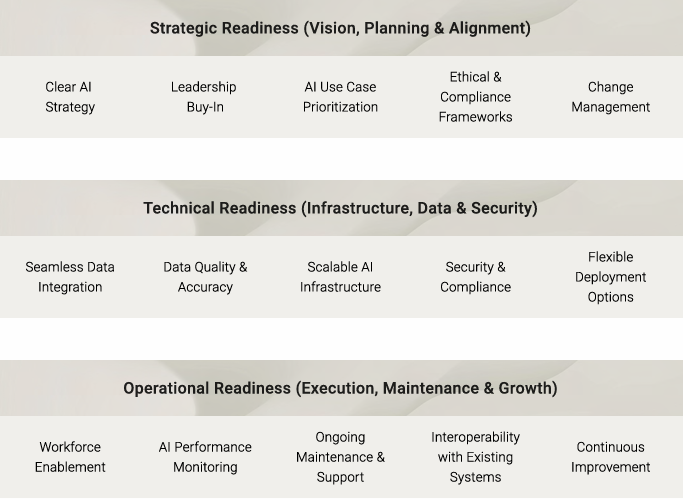
Successful AI Initiative Teams Should Include a Cohesive Team:
- Executive Sponsor; perhaps CEO
- Champion(s) from non-IT organization(s)
- Business process (e.g., product, process owners) experts
- Business subject-matter-expert(s) that understand low-level activities
- AI expert(s)
- Data Scientist(s)
- Data Analyst(s)
- CTO/infrastructure expert(s)
- Human Resources expert(s)
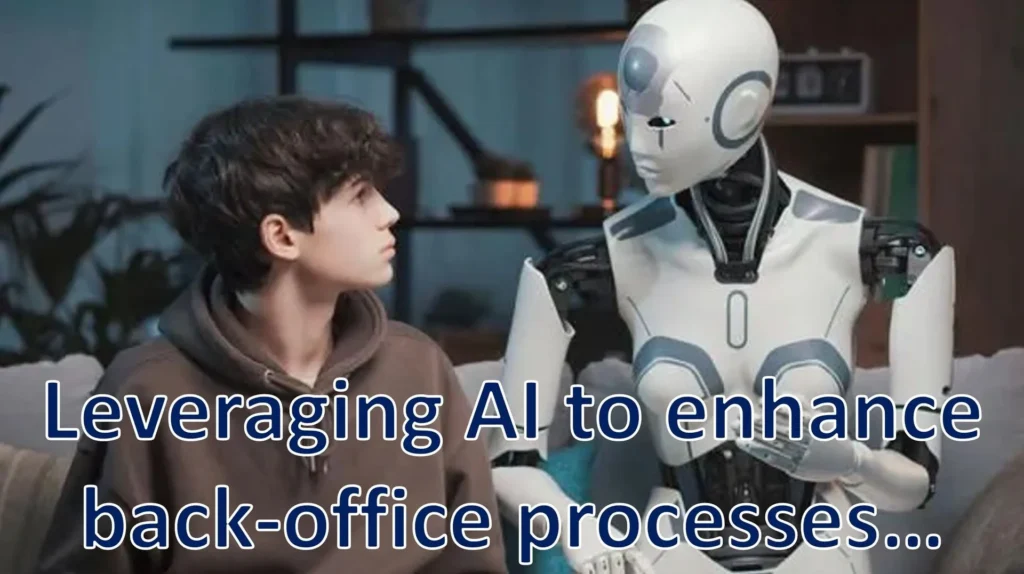
Much like economists advocate for diversification to navigate economic uncertainty, workers need to cultivate adaptable skills that emphasize creativity, complex problem-solving, and emotional intelligence – areas where AI still falls short.
Those who find the most success will be the professionals who collaborate effectively with AI rather than seeing it as a competitor. However, the pressing question is whether these adaptations can occur swiftly enough to stave off widespread unemployment as AI advances at an extraordinary rate.
For example, administrative roles that involve routine documentation, scheduling, and communication are increasingly leveraging AI tools capable of performing these tasks with minimal human oversight, reflecting the economic warnings from experts.
Process support roles are experiencing unprecedented opportunities from AI automation. Administrative professionals who do not upskill quickly may find themselves competing for a dwindling number of positions. The World Economic Forum projects a 35% reduction in traditional office support roles by 2030.
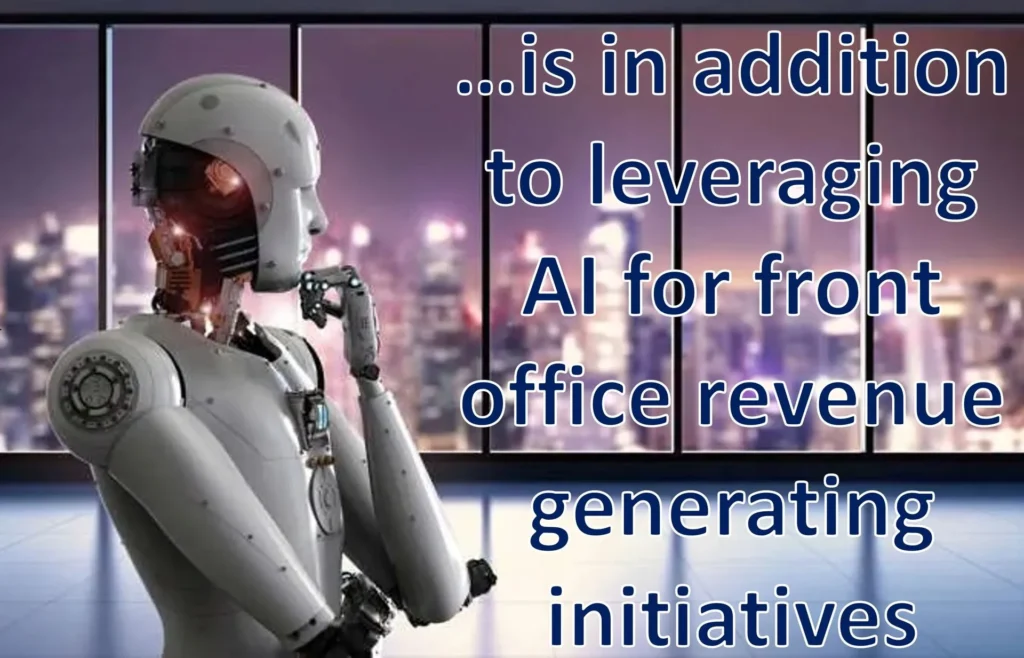
As a further illustration, customer service processes are being enhanced from conversational AI. Companies are deploying sophisticated chatbots and virtual assistants capable of managing increasingly complex customer interactions without the need for human intervention. As economic pressures rise and companies seek to cut overhead costs, customer service processes are prime targets for AI replacement. According to the World Economic Forum, over 40% of customer service roles could be automated by 2028, with voice-recognition technology advancing rapidly to handle even nuanced conversations and emotional responses.
AI is poised to become an integral part of daily life, with the potential to even take on roles traditionally filled by teachers, nurses, and tutors. At present, expertise in fields like medicine and education is often scarce, relying on the presence of exceptional individuals – a “great doctor” or a “great teacher.” However, the rapid advancement of AI is expected to democratize access to expertise, providing high-quality medical advice and personalized tutoring to the public for free. This shift will transform specialized knowledge and services from being rare and exceptional to universally accessible and commonplace.
Like other new technologies, it is likely that we will overestimate the impact that AI will have in 3 years but underestimate the impact that we will experience in 10 years.
One thing is certain and that is that AI is (and will continue to) providing a profound competitive force. With competitive opportunities, and cross-organization workflow, and compliance requirements occurring across and within every industry (e.g., Pharma, Financial Services, Healthcare, Government, Retail, Manufacturing, Petro, Hospitality, Education), no one is immune from the benefits (and challenges/considerations) provided by AI technologies.
10 Popular Examples of AI Use Cases
- Service process operation optimization
- New AI-based products & services
- Customer service analytics
- Customer segmentation
- AI-based product research & enhancements
- Customer acquisition and lead generation
- Contact center automation
- Product feature optimization
- Risk modeling and analytics
- Predictive service and intervention
Click here to see specific industry examples from GIIMs digital industry programs
- With only 35% of IT and non-IT executives believing that their organizations currently have the required digital leadership skills, the opportunities for digital management education are growing exponentially.
- The success rate of today’s digital initiatives resembles the traditionally low success rate of IT projects. We continue to make the same mistakes.
To address the AI productivity paradox, it is essential to have IT and non-IT organizations in harmony. This is in addition to having integrated technologies, and accurate, accessible, secure data. These are all essential to a successful AI initiative, thus providing additional topics addressed in this program.
Considered by many as the next industrial revolution, Artificial Intelligence (AI) will be more transformative in a shorter period of time than stone tools, controlled use of fire, the wheel, clothing, agriculture, alphabets, printing, vaccines, incandescent light, telephones, the steam engine, flight, antibiotics, television, computers, the internet, fusion energy, etc.

Since generative AI hit the scene in 2022, it has swiftly permeated enterprise solutions from leading vendors. From tools that let organizations blend their data and processes with large language models, to AI features within major productivity suites, the technology’s reach across business functions has expanded rapidly.
With AI’s advancements, distinguishing between a chatbot and a human has become increasingly difficult. The Turing Test has long served as the benchmark for evaluating computers’ ability to mimic human intelligence.
A decade ago, the best AI systems in the world were unable to classify objects in images at a human level. AI struggled with language comprehension and could not solve math problems. Today, AI systems routinely exceed human performance on standard benchmarks.
AI is on the top of every emerging technology and investment list, and has become an essential, disruptive, and universal game-changing solution.
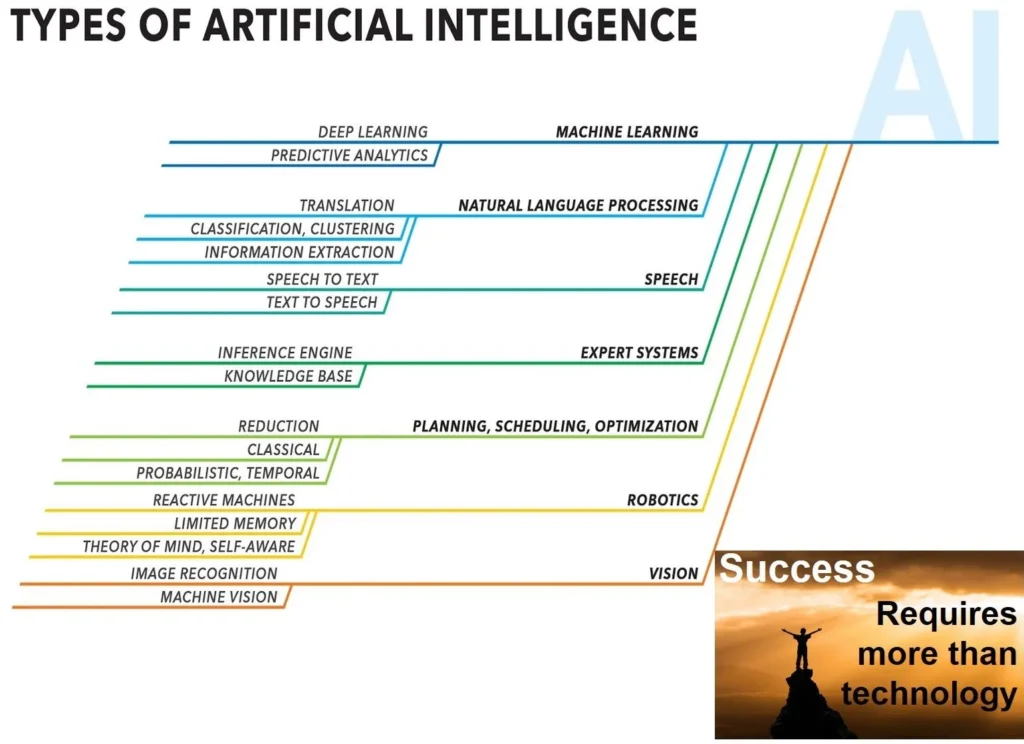
AI requires a team with a diverse skillset that goes beyond just technical expertise. Data scientists and engineers are crucial for building the models, but without a solid understanding of business needs on board as well, these models’ risk being irrelevant. A real dream team for AI success will blend technical prowess with business acumen. The lineup should include domain experts who understand the specific business challenges that the AI is designed to address, as well as change management specialists who can navigate the cultural transformation that often necessary to fuel broad AI adoption. Don’t forget the importance of so-called softer skills such as communication and collaboration as well. A team that can effectively communicate the value proposition of AI to stakeholders and foster a collaborative environment where data scientists and business leaders work seamlessly together is essential for achieving long-term success.
While the full promise of AI is still uncertain, its early impact on the workplace can’t be ignored. It’s clear that AI will make its mark on every industry in the coming years, and it’s already creating a shift in demand for skills employers are looking for. AI has also sparked renewed interest in long-held IT skills, while creating entirely new roles and skills companies will need to adopt to successfully embrace AI.
The rise of AI in the workplace has created demand for new and emerging roles in IT and beyond. Chief among these are roles such as prompt engineers, AI compliance specialists, and AI product managers.
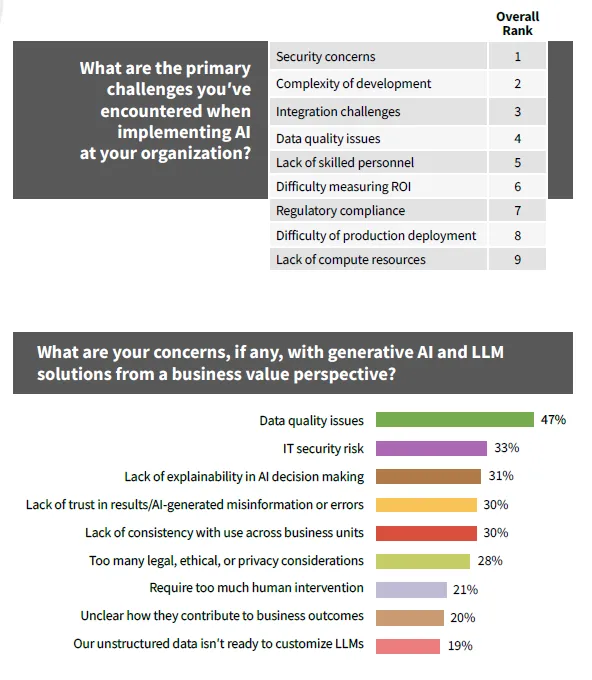
Other emerging roles include AI data annotators, legal professionals specializing in AI regulation, AI ethics advisors, and content moderators to track potential disinformation around AI.
Organizations are also seeking more established IT skills such as predictive analytics, natural language processing, deep learning, and machine learning. In addition to these skills, there is also an uptick in demand for skills around large language models, ChatGPT, and similar generative AI bots.
AI has also created a demand for new C-suite roles focused purely on leveraging generative AI throughout all aspects of business—from internal ways of working to external AI-powered product solutions for customers.
This has sparked conversations around ethics, compliance, and governance issues, with many companies taking a cautious approach to adopting AI technologies and IT leaders debating the best path forward. AI can and should be harnessed for the betterment of society, but it must be done responsibly and with robust governance frameworks in place. In addition to the “usual” considerations when introducing new technologies, addressing the security, moral, and ethical challenges inherent with AI initiatives is receiving significant attention around the globe. Considerations including political misrepresentation, distinguishing a human from a machine (e.g., emotion, envy, anguish, joy, philosophy), legal (is it the machine, programmer, designer, etc. to be held accountable).

AI models are programmed by people based on available data. But which people and what data? We need to avoid the errors and biases that could undermine the validity and reliability of AI systems.
Three Laws of Robotics (often shortened to The Three Laws or Asimov's Laws) introduced in his 1942 short story "Runaround" (included in the 1950 collection I, Robot) are influencing AI deployment:

First Law: A robot may not injure a human being or, through inaction, allow a human being to come to harm.
Second Law : A robot must obey the orders given it by human beings except where such orders would conflict with the First Law.
Third Law : A robot must protect its own existence as long as such protection does not conflict with the First or Second Law.
Added Zeroth Law : A robot may not harm humanity, or by inaction, allow humanity to come to harm.
Luftman’s Addendum : Establish a globally unified framework for AI governance, regulation, compliance, and accountability to uphold ethical standards, ensure truth and validity, and effectively counter misinformation, disinformation, and falsehoods.
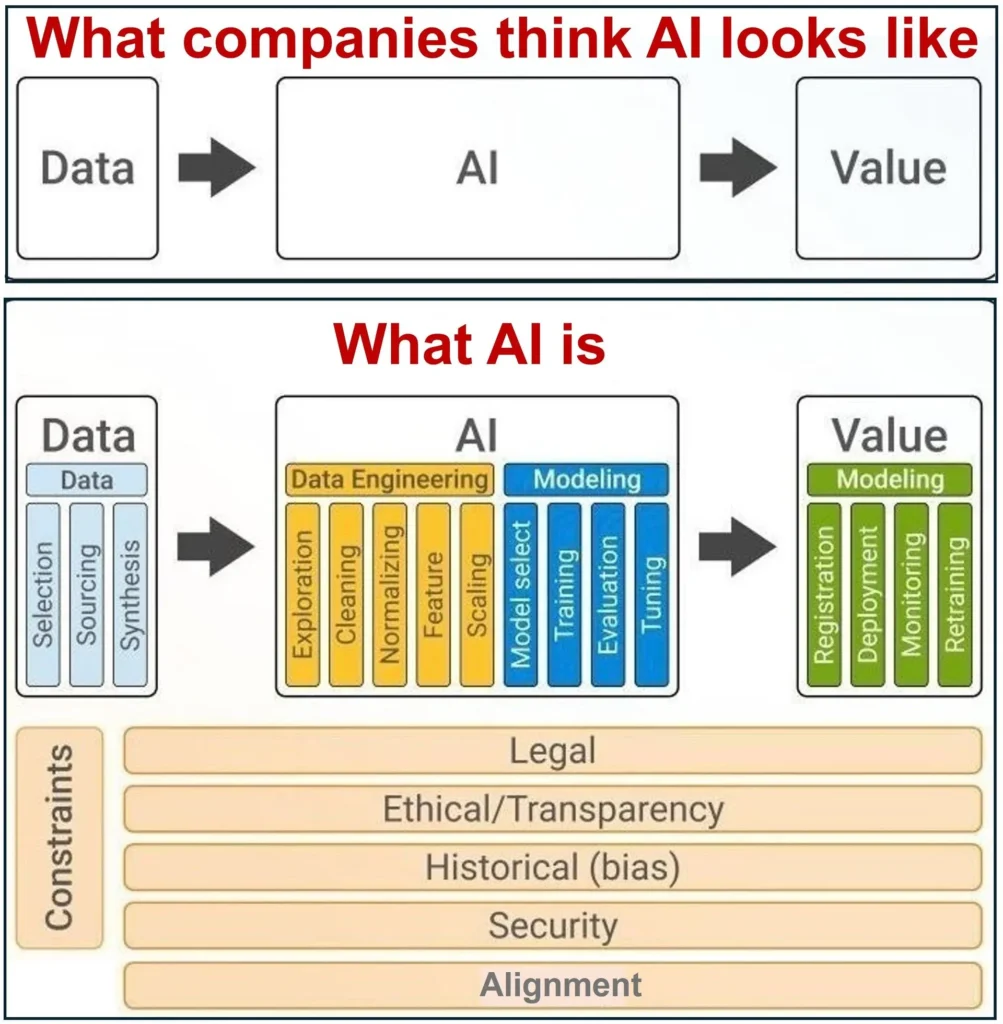
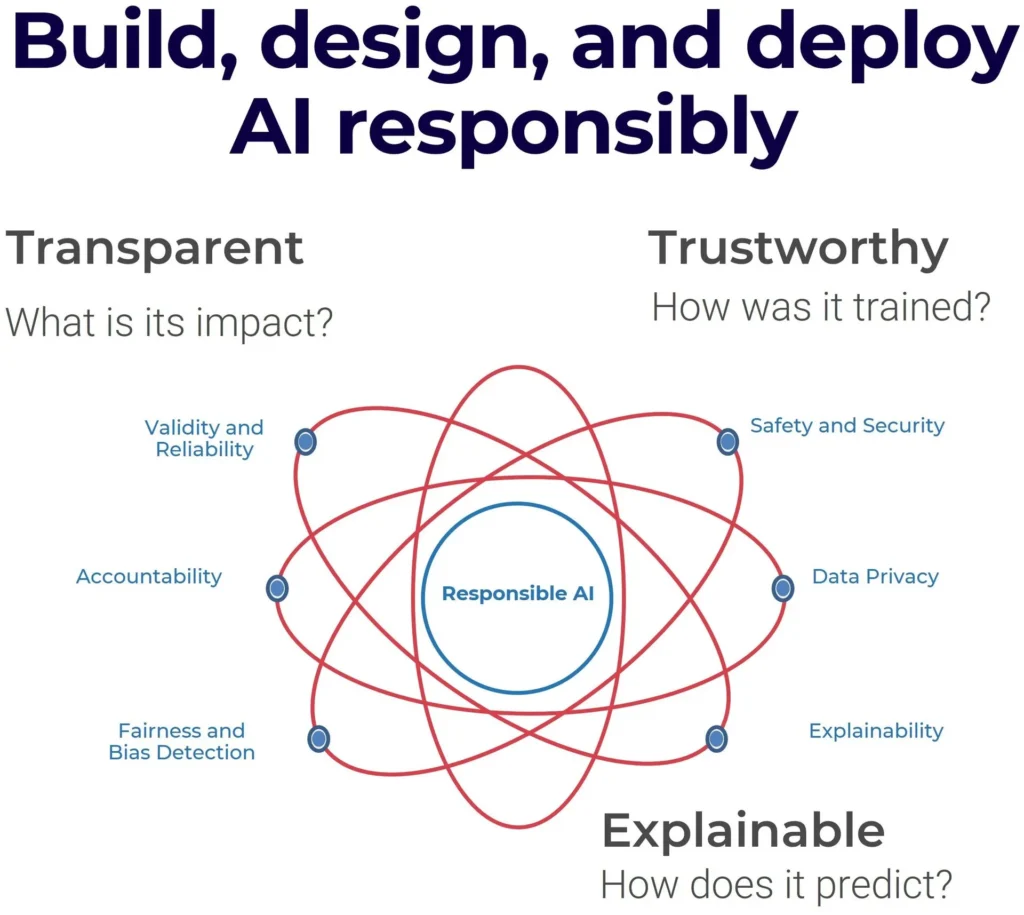
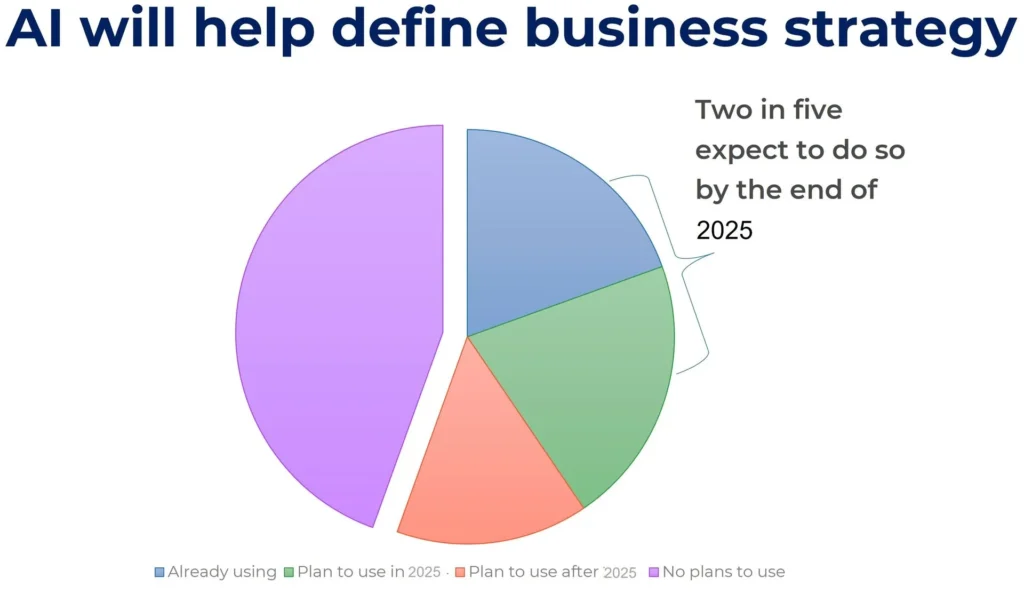
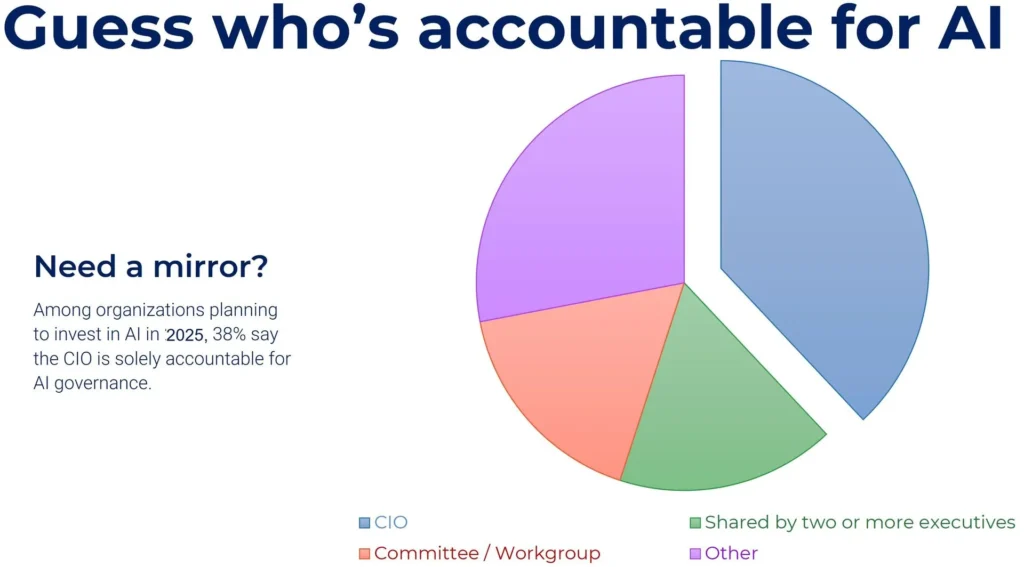
Having technical skills alone does not address the pervasive persistent IT-business alignment conundrum demanding IT and non-IT organizations working in harmony to identify opportunities for leveraging AI, and the newer concern to address the AI security, moral, and ethical challenges!
As part of an independent 4-course Certificate, or an all-inclusive Deploying Analytics Certificate (Big Data, Business Intelligence, Knowledge Management), or Technical Training Certificate, candidates will learn how to harness these different AI technologies to meet specific business needs/objectives while identifying innovative ways to reach new customers, maximize efficiency/effectiveness, and drive profitable growth.
All Aspects of the Data-AI Value Chain Must Be Considered
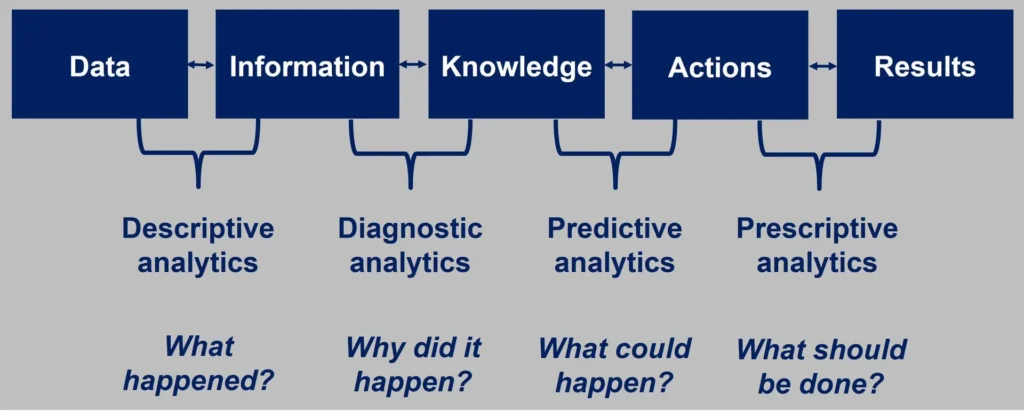
GIIMs AI courses prepare candidates for careers supporting this evolving field, including the driving forces behind industry specific opportunities and considerations. In these AI courses, participants will understand the various technical, management, legal, and ethical considerations for selecting a technology/platform, and effectively applying the technology in real-world applications.
While there is clearly a growing need for domain and organizational knowledge associated with AI, as it’s vital to have a deep understanding of organizational needs to determine which AI technologies will be best suited to a given application, much of the discussion around AI in the workplace has been about the jobs it could replace.
